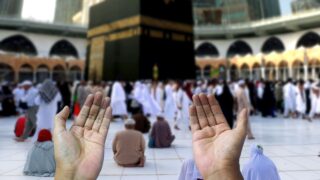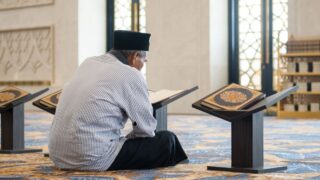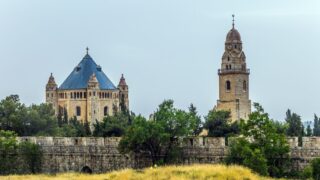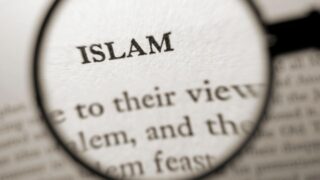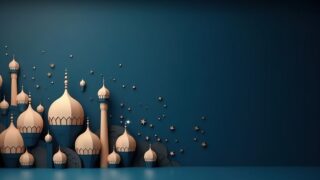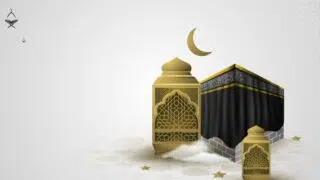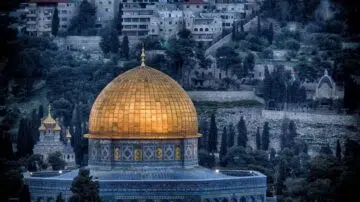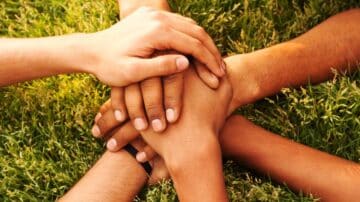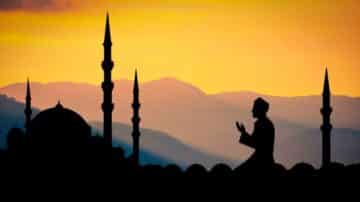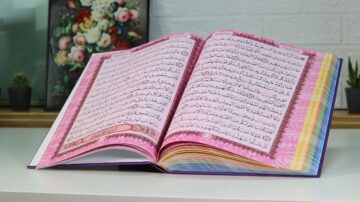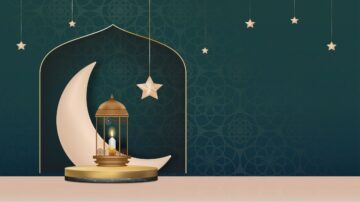“A burning ball of fire, an electric shock that conquers all, a darkness, a mania, an explosion, a ripping of one’s heart. There are many expressions that we use to describe one of the most primal and controlling emotions that humans experience—anger. One of the reasons why I am addressing anger is because as Muslims experience more pain and oppression, the accumulation of unresolved anger has the potential of becoming harmful to the person harboring it and to others,” said psychotherapist Layla Asamarai in Anger in the Family. As we struggle to find balance in our families and daily lives, what choices do we have to make?
Toward Understanding and Transforming Hate
“Why do they hate us?” is the ten-million-dollar question since the September 11 bombings four years ago. As friends and loved ones face an unprecedented level of Islamophobia and anti-Muslim bias, we increasingly ask the same question: Why do they hate us?
For Muslims who tend to see ourselves as perpetual victims in a world seemingly dominated and dictated by Western powers, the situation seems to keep getting worse. With every suicide bombing, with every mention of a terrorist threat, Muslims living in the West are put on the defensive. However, there are many positive signs and indications that things are changing for the better. For example, the historical fatwa passed in both the United Kingdom and the United States condemning suicide bombing and terrorism in all their forms was monumental in the way it drew wide support from across the Muslim world. The psychological value of such a message also helped Westerners to see that the vast majority within Islam believe that it is truly and unequivocally a religion of peace and justice, and not one of tribalism. Sheikh Sidi Karamali writes,
Muslims must side with the truth, not merely with other Muslims. The Prophet (Allah bless him and give him peace) said, “Help your brother, whether he is oppressing or oppressed.” The Companions asked, “We shall help him if he is oppressed, but how can we help him if he is the oppressor?” The Prophet (Allah bless him and give him peace) replied, “Stop him [from his oppression]” (Bukhari). It is not a matter of siding with Muslims or non-Muslims; it is a matter of siding with the truth. These are all Islamic principles that are recognized by traditional scholars of Islam throughout the Islamic world. These principles are particularly important for Muslims living in Western societies after the tragic events of 9/11.
To determine the appropriate way to respond to rising levels of hatred and intolerance, we must first understand hatred in the light of truth. As the age-old adage tells us, much of what human beings fear is due to ignorance. In the present case, however, I would argue that the query “Why do they hate us?” is posed, not so much out of ignorance of “the other,” as much as it is from ignorance of ourselves and how our shadow-self is perceived by “the other.” This is, perhaps, one important reason as to why Allah constantly asks us to engage in self-examination and to take stock of ourselves and our deeds. Perhaps we do not understand how we are perceived by those that hate us, and how they are perceived by us. Though we may see ourselves—in our own minds—living lives of peace and dedication to God, others may perceive us (whether true or not) as living exclusionary, backward lives of self-segregation and even violence and oppression. That is why we must always examine ourselves, our hearts, and be tuned in to our intentions. Furthermore, until the walls of miscommunication and misunderstanding are broken down, we can never know the truth of the matter in regard to how we are truly perceived by “the other.” There is no substitute for communication, particularly in times of tension and trial.
What Is Allah Trying to Show Us?
Everything is from Him. This was one of the first lessons I learned in Islam prior to my conversion six years ago. It is the peak of tawheed; simple, yet so important and powerful. Everything is from Allah. When we attempt to understand our lives in this way, through the eyes of tawheed, with Allah as the ultimate cause of everything (Such is Allah, your Lord, the Creator of all things [Ghafir 40:62]), quite naturally we will seek understanding in our lives. We know Allah creates everything, we know Allah is the primary cause behind everything, and we know that Allah is the Most Merciful and the source of ultimate good. Thus, with everything that occurs in our lives, might we ask “what are we to learn, Lord, and how should we respond to that which You have willed?” From this vantage point, we will naturally yearn to know what Allah wants us to do, which in fact we already have the answer for: to know Him.
If Allah wants us to know Him, does it not make sense that the manifestation of severity and rigor is Allah’s way of calling us back to Him and His all-pervading mercy and goodness? Could it be that the “whip” of severity is the Creator’s way of reminding us of our ultimate purpose here? The Qur’an teaches us that there are three ways to know Allah: through revelation (the Qur’an), through creation, and through the self:
In Islamic theological thought, a distinction is always made between the divine Essence (dhat) and the divine Attributes (sifat). The divine Essence is what God is in Himself which only God alone knows. The divine Attributes are the Names (asma’) of God revealed in creation and in revelation (wahy) or the Holy Koran. The Koran refers to its verses, phenomena in nature, and events within the human soul, as the ayat or ‘signs’ of God. The natural ayat and the Koranic ayat complement and enhance each other in their function of manifesting the Truth; all of which can lead the discerning man back to God (Morris).
One of the important roles that hardship plays in life is to facilitate introspection, to help us look toward the inside and better understand our innermost selves and hearts. When we experience tragedy or calamity, often the first thing we do is go inside ourselves, seeking understanding and solace. It is an important soulful activity that must be done in order to fully realize our humanness. With the demise of traditional psychology, however, also known as tasawwuf (or Sufism), there has been a serious neglect of the inner self within Islamic discourse and education. Much attention is paid to the external self and legal aspects of religious life, yet multitudes of us live in fear, illness, and uncertainty due to the ignorance of what lies within our hearts. As a counselor I know this to be true from first-hand knowledge and experience working with Muslims.
Part of the self-surrendering to Allah (al-Islam), therefore, must be to accept all of the Names of Allah, and to embrace all of the ways that He chooses to manifest Himself in our lives, including those perceived as severe or harsh. Not being appreciative of the mercy of Allah in our lives and merciful in our interactions with others will inevitably result in the experience of Allah’s wrath. For to be neglectful in our role as the community of the Mercy to All the Worlds (Prophet Muhammad, peace and blessings be upon him) is deserving of a divine wake-up call.
Don’t Cope – Transform!
The good deed and the evil deed are not alike. Repel the evil deed with one which is better, then lo! he, between whom and thee there was enmity (will become) as though he was a bosom friend (Fussilat 41:34).
Resilience is the unique ability to cope with hardship and trial. The prophets of Allah, however, were not examples of resilience. They did not merely cope with the arduous tasks and trials that they were given. They did not merely survive, they transformed. Transformation, not resilience, is what we need today as Muslims. We need not only the ability, skills, and knowledge to cope with what is happening around and to us, but we must use our resources to improve ourselves as well as those around us for universal betterment. This is the true Prophetic example.
A wise man once said, “If you can see it in your heart you can transform it. If you can do that, you offer hope and mercy for those that hate instead of more hatred.” You cannot simply hate haters; the result becomes an endless cycle of hatred resulting in endless human misery and suffering. And it is a choice that Allah gives us whether to take that route or not. The decision to hate back is not forced upon us. We are given the choice whether to hate or not; thus, the above ayah from the Qur’an is about repelling evil with goodness.
The question, rather, is whether we can go deep inside ourselves to address that shadow-self that hates? Can we “go there”? Do we dare face our demons, the part of us that is the cause of our pain, fear, and confusion? That shadow that is none other than—dare I say—our own sense of victimhood. The transformation of something of lesser value into something of greater value is called alchemy. The ability to turn what is considered “evil” into something “good” is the product of understanding it in its true sense and discovering its purpose on the path of spiritual development. A negative can be turned into a positive if we surrender to it and seek its purpose. So it is with hatred. If we can see it and understand it, both within others and our own selves, then we can transform it. If we cannot, it will destroy us. The former is an act of surrender to Truth, the latter, a “covering up” of that Truth.
The Prophet (peace and blessings be upon him) was known to sometimes pray with the following words: “O Allah, I seek refuge in You from You.” According to Twinch (1997):
It may be that God sometimes manifests Himself to us under the aspect of rigor in order to make us turn to His Mercy. In this way we seek God in His manifestation as the Merciful and try to avoid Him in His manifestation as the Avenger. Since God is both the Avenger and the Merciful, protection is sought from the Most Merciful against the rigor of His Name the Avenger.
Here we can begin to understand the role of Allah’s manifestation of hardship and even evil in the world, to return us back to His mercy and the path to it. This is evidenced by the hadith qudsi “My mercy overcomes My wrath.” Given the manner that human beings are conducting themselves in the present age, it is no wonder that Allah continues to manifest Himself more and more through the name Avenger.
Recently another tragic event struck as Hurricane Katrina ravaged the Gulf Coast of the United States. Thousands have died, and property damage will be in the billions. Moreover, most of the dead and displaced are poor minority Americans who had very little to begin with. In the wake of the destruction, I was so happy to see that the American Muslim community pledged $10 million to help the victims of the hurricane. Despite the amount of Islamophobia, hatred, and even in some cases violence that has occurred against the American Muslim community, Muslims came together for the sake of their neighbors and fellow Americans and decided to tread the path of mercy. This is an example of the role that Muslims can and should play at all times, particularly those of hardship, hatred, and difficulty—to point people to Allah’s mercy and unity by being merciful. In reality, it is nothing more than being a good neighbor; however, it is the basics such as being neighborly that allow mercy and goodness to take hold and spread. What may seem simplistic is often the most effective approach. Only Allah can bring light out of darkness, however, which is why putting our trust in Him when facing severity and trial must be our first order of business.
From this example, Muslims can begin to map out a way toward dealing with and even repelling the prevailing hatred and Islamophobia that are gripping the West. The road will not be easy and it will require much work and sacrifice. Primarily though, it will require modern Muslims to finally idealize our faith—the way of righteousness, peace, and unity. For Islam is not a religion of exclusion; rather, it is a religion of inclusion based on the unity and oneness of the Divine. That unity is all pervading and includes all of creation, not only the part of creation that we deem to be “Muslim.” Bringing people together and bringing them to the straight and immediate attainability of God’s oneness and mercy are the way that Islam has always succeeded in forging peace and brotherhood. Now is the time to reclaim that heritage by being the “community of unity” and the only Ummah that has the formula for forging ultimate peace and understanding between peoples.
By Abdul-Lateef Abdullah


